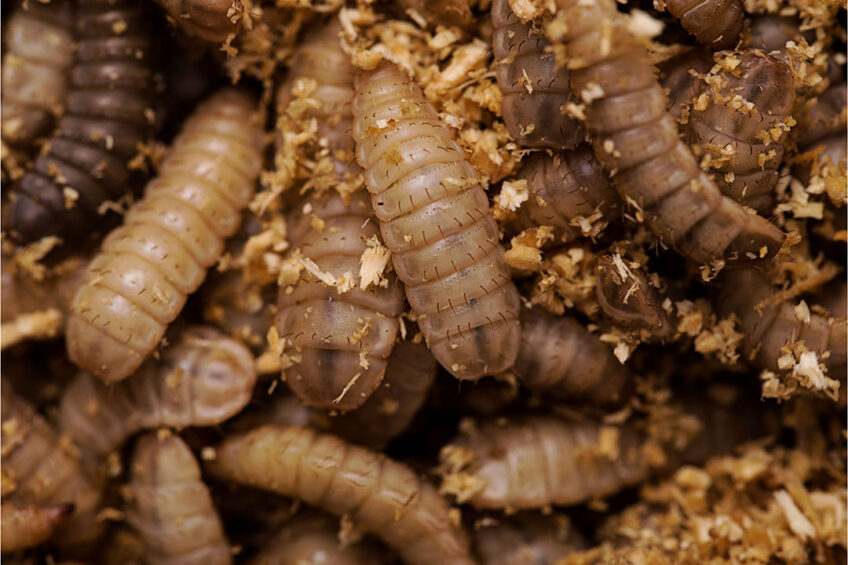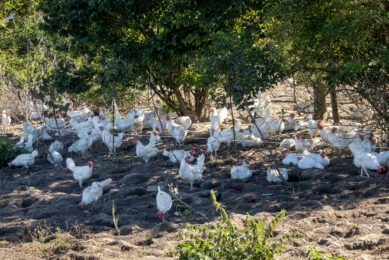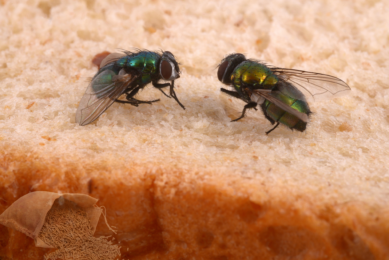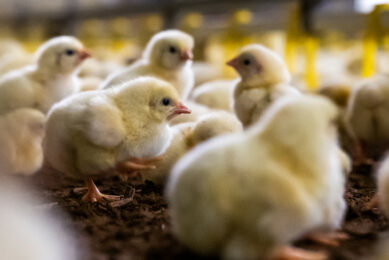Analysis: Feeding fly larvae to indigenous poultry

Insect-based feeds can successfully and cost-effectively replace fish meal without compromising growth performance of birds, according to new research from East Africa.
The team of researchers from the International Centre of Insect Physiology and Ecology, Nairobi and Kenyatta University, Kenya, evaluated the growth performance of improved indigenous chicken (IIC). The birds were fed diets containing different inclusion levels of Black Soldier Fly Larva (BSFL) meals.
Poultry products expand faster than other meat products
They did so in the context of poultry products accounting for approximately 45% of animal protein needs required in the next decade, according to the OECD. In Sub-Saharan Africa, the consumption of poultry products continues to expand faster than other meat products, due to rapid population growth and greater purchasing power. Around 80% of rural households in developing countries keep poultry, predominantly raising IIC birds.
However, IIC production is characterised by low productivity and faces challenges from the high cost of formulated feeds, which represent 70% of total production costs.
BSFL included in chick and grower diets
As replacement to the expensive fish meal in chick and grower diets, the BSFL meal inclusion rates in the study included:
0% (Diet 0)
5% (Diet 1)
10% (Diet 2)
15% (Diet 3)
20% (Diet 4)
The diets for the starters were constituted to have at least 2,800 kcal ME/kg and 18% crude protein, while that of the grower had 2,500 kcal ME/kg and 15% crude protein.
A total of 315 mixed-sex day-old KALRO-improved indigenous chickens were sourced and placed in a round deep litter brooder prepared at the poultry house and were kept in the unit for 7 days. They were weighed and randomly distributed to the 45 experimental units. A round 4-l drinker and plastic tube feeder was provided for each unit.
The 63 birds in each experimental unit were randomly assigned to one of the 5 dietary treatments. For the starter phased, the experimental starter diet was provided ad libitum for a period of 8 weeks. They were then given a grower diet between week 9 and 18.
Feed intake, body weight gain and survival rates were monitored throughout the research with cost-benefit analysis and return on investment used to evaluate the economic implications of replacing fish meal in chicken diets with BSFL meal.
Feed intake, FCR and daily weight gain affected
The results showed that diet significantly affected the average daily feed intake, feed conversion ratio and average daily weight gain of the chicks. The gross profit margin, cost-benefit ratio and return on investment of feeding birds with BSFL meal varied significantly.
The highest cost-benefit ratio of 2.12 was recorded for birds fed on the highest diet of BSFL meal (Diet 4), demonstrating that insect-based feeds can successfully and cost-effectively replace fish meal up to 20% without compromising the growth performance of the birds.
An essential part of poultry feed production
Therefore, the authors say, BSFL meal could be incorporated as an essential part of poultry feed production for IIC, potentially reducing the total feed cost while maintaining optimal production and reducing the cost of meat and egg products.
But they also stressed that important efforts should be made to evaluate new processing techniques such as defatting of the BSFL meal, which is capable of improving the protein profile of the larvae, thus potentially counteracting the negative effects on the nutritional value, perceived healthiness and economic benefits of the poultry meal.
Defatted BSFL meal will also reduce the risk of lipid oxidisation, allowing for a longer shelf-live and proper mixing of the product for optimal feed formulation. The defatted BSFL meal or oils should also be evaluated from a safety perspective, they added.











